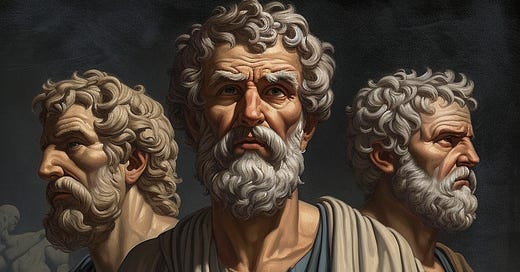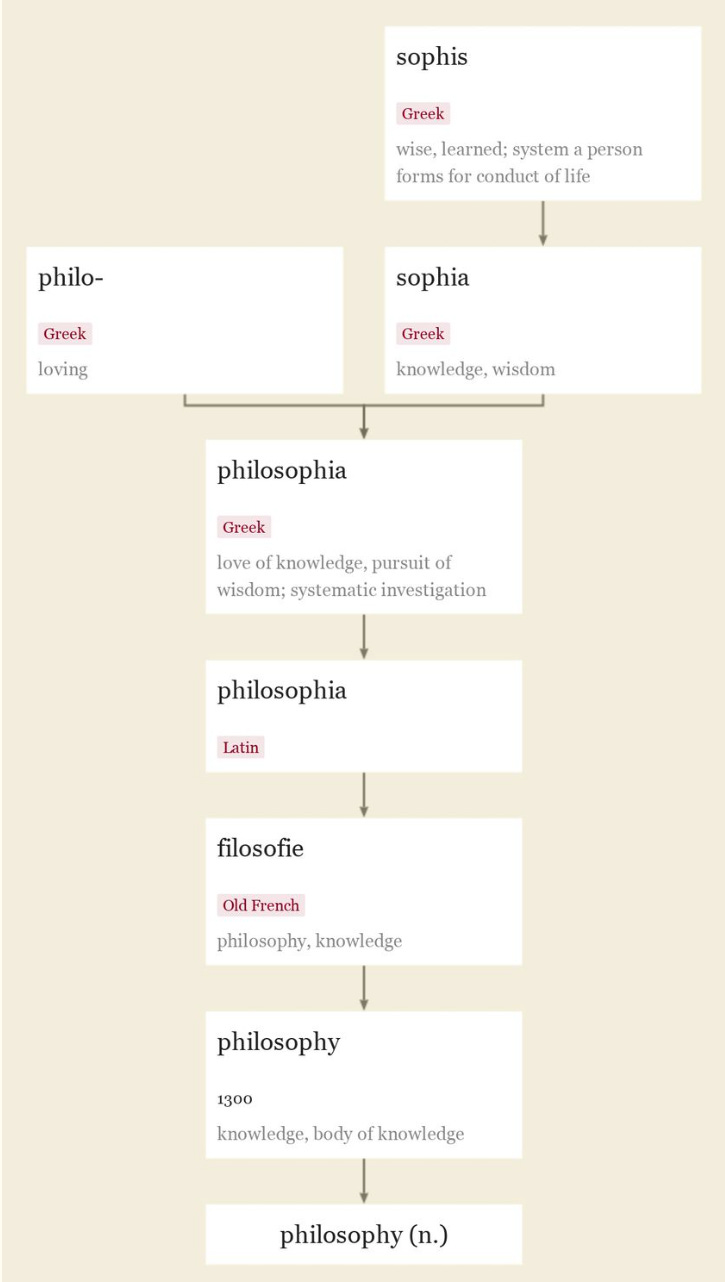
Last week, I had a Zoom call with someone from Daniel Vassallo’s Small Bets community.
The person — let’s call him B — was leaving a cushy tech job and wanted to give the whole solopreneur thing a try. So given my background, B wanted insights into how I deal with uncertainty.
I do think my decision-making, risk-taking and ability to handle uncertainty have exponentially improved post-poker.
Most of this ability has stemmed from a switch in mindset. Before, I had a zero-sum mindset — For me to win, you have to lose. Now, I optimise for a positive-sum mindset — how can we both win?
I’ve also stopped playing finite games and now play in the domain of infinite games.
Despite the luck, variance and uncertainty, poker is mainly a finite game. There are known players. Fixed rules. And the objective is to win money.
In contrast, business, investing and writing are infinite games. There are known and unknown players. There are no exact rules — Only laws or conventions that govern how players conduct themselves within the boundaries of the game. How you choose to play the game is up to you. Infinite games have infinite time horizons. And because you can’t “win” the game, the objective of infinite games is to keep playing for as long as you can. Survival takes precedence over everything in infinite games.
B asked me if the uncertainty ever goes away — It doesn’t. Some days the volatility of uncertainty can be dizzying. However, there’s been one philosophy that has helped ground me and keep me somewhat sane.
And that philosophy is stoicism.
Stoicism has had a life-changing impact on me. And I wish I had discovered it sooner. Perhaps I would’ve been spared a lot of unnecessary pain.
My curiosity in stoicism happened the way you fall asleep; slowly, one quote from Marcus Aurelius at a time, and then all at once.
Stoicism offers a practical way to approach the natural vicissitudes of life. And as someone who deals with so much uncertainty on a day-to-day basis, this works great for me.
I know stoicism has kind of a bad rap. To be viewed as stoic is to be seen as someone who experiences no feelings of pain, pleasure, joy or grief. It’s to have the emotional aptitude of an Ancient Greek marble statue sitting on display in the British Museum.
As much as I’ve tried in the past to suppress my emotions to play flawless poker, I’m a volcano of emotions. A philosophy devoid of emotions would not work for me.
From my understanding, stoicism seeks to minimise unnecessary negative emotions. ‘Unnecessary’ being the key word here.
No matter what you do, life is going to be filled with problems. Sometimes those problems can make you angry. But acting upon the anger can cause further unnecessary consequences. The stoics acknowledge you’re entitled to be angry, but being hotheaded and lashing out is a choice you’ve made.
“A Stoic is someone who transforms fear into prudence, pain into transformation, mistakes into initiation, and desires into undertaking.” – Nassim Nicholas Taleb.
Like all philosophies, there’s a lot to stoicism and cannot be shared all in one email, so I want to first set the stage and go right back to the beginning.
The word philosophy comes from the Greek words philo (meaning love) and sophia (meaning wisdom). Philosophy means the love of wisdom.
To me, philosophy is a thinking framework to answer the existential questions in life. Such as how to live?
Obviously, there’s no one right way to live. What works for me may not work for you. Everything exists in context. Philosophy provides a lattice framework full of connected and overlapping mental models to help you decide how to live. Stoicism is just one of the mental models I use to guide me through life.
Stoicism begins with misfortune.
It was founded in ancient Greece around the 4th century BC by Zeno, a wealthy Phonecian merchant who lost all his wealth in a shipwreck and barely made it out alive.
Yet, Zeno would later rejoice in his misfortune, claiming, “I made a prosperous voyage when I suffered shipwreck.” For it was this shipwreck that created the path for stoic philosophy.
Zeno’s philosophy was initially called Zenoism, but he renamed it after the place in Athens where he and his students gathered, the Stoa Poikile – translated to the painted porch.
Fast forward to 2023, and only the writing of 3 stoics has largely survived: Epictetus, Seneca and Marcus Aurelius.
To me, there is so much beauty, clarity and wisdom in their writing. And as I’ve read through their work, I’ve realised how little humans have changed over the last 2000 years.
Epictetus 50-135 AD
We don’t know much about him other than that he was a slave. ‘Epictetus’ wasn’t his real name and means ‘acquired’ in Ancient Greek.
In his late teens, he was granted freedom and proceeded to teach philosophy. He didn’t write, but fortunately for us, his student Arrian transcribed for Epictuetus and produced eight books titled Discourses – of which only four have survived.
Epictetus's main idea is the dichotomy of control – some things are within our control, and others are not. Focus on what we can control. Disregard what we can’t.
“Some things are within our power, while others are not. Within our power are opinion, motivation, desire, aversion, and, in a word, whatever is of our own doing; not within our power are our body, our property, reputation, office, and, in a word, whatever is not of our own doing.” — Epictetus
Understanding the dichotomy of control is a powerful way to handle uncertainty.
I was already familiar with this concept from poker, but it translates well to life too. I couldn’t control what hand I was dealt or the outcome of it. But I could control how I played the hand.
Some people are dealt a shit hand in life but choose to be better. On the flip side, there are those who are dealt are great hand but still make poor decisions.
How you start life doesn’t determine how your life will go. The choices you make and the action you take does.
Marcus Aurelius 121-180 AD
Marcus Aurelius was the emperor of the Roman Empire.
I have great admiration for Aurelius. Not because of his power and status as the Roman emperor, but the fact that he was an emperor AND remained a good human being.
There’s the proverbial saying: power corrupts; absolute power corrupts absolutely. If you want to morally bankrupt a person, give them power. History is littered with examples of rulers destroyed by power.
Yet, Aurelius is the rare exception. He controlled every territory that touched the Mediterranean Sea. Anything he said was gospel, and could have anything he wanted. But he chose not to.
During his 19-year reign, Aurelius did not abuse his power. Despite being warned not to, he promised not to prosecute any of his political opponents, and he kept that promise. Choosing to govern the Roman empire with benevolence and civility.
The only piece of writing that has survived is Aurelius’ private journal, which he called Meditations. This was never intended to be published publicly, but for the Roman emperor to reflect privately on his life:
“Waste no more time arguing about what a good man should be. Be one.”
“Never esteem anything as an advantage to you that will make you break your word or lose your self-respect.”
“A man’s worth is no greater than the worth of his ambitions.”
I know we will never truly know if the image of Aurelius was over-idealised or not. But to me, Aurelius is someone worth aspiring to.
Seneca 5 BC - 65 AD
Lucius Annaeus Seneca was a complicated man. Perhaps the most conflicted of all three.
Seneca was a true Renaissance man. In addition to being a philosopher, he was an investment banker, a writer, a senator and an advisor to the barbaric Roman Emperor Nero.
Seneca was also the most prolific writer of the three, and a lot of his writing has survived.
Seneca’s wisdom is stunning in its simplicity.
“Time discovers truth.”
3 words long, but it epitomises a lot of things in life. It’s the core of what poker, business, investing and writing is. In poker, luck wreaks havoc in the short term, but in the long term, it reveals whether you’re a winning player or not. Thinking through writing is revealing the true extent of your knowledge over time.
As I mentioned above, Seneca was a complicated man littered with contradictions.
He writes that wealth must be acquired in an ethical way, yet he became one of the richest men in Rome at the service of one of the Roman Empires’ evilest emperors – Nero.
It’s hard to know what Seneca’s true intentions were. Perhaps he felt like it was his duty to provide guidance to the despot emperor and help benefit the rest of Rome. But we do know that Seneca got rich serving Nero.
Here’s another example of Seneca being a hypocrite.
Seneca wrote, “Wealth is a slave of a wise man. The master of a fool.” And, “He is a great man who uses clay dishes as if they were silver, but he is equally great who uses silver as if it were clay.”
Yet, Seneca was a slave to his own wealth, as he obsessed over material things: polished furniture, exotic slaves, and wine.
Seneca wrote books on Stoicism but struggled to practice what he preached.
There’s no judgment here. Quite the opposite, actually. I see a lot of myself in Seneca’s struggle, and his contradictions highlight the struggle of what it means to be human.
Growing up, I was made to think that mistakes and failures were catastrophes and to be avoided at all costs. But it’s impossible to live a life free from error.
Stoicism equips you with the mental tools to deal with those errors. It teaches you to focus on what you can control. To reframe setbacks as opportunities. Or to acknowledge one’s thoughts and feelings but react in a respectful way.
I know stoicism is not for everyone. But I can wholeheartedly say that it’s helped remove the unnecessary negative emotions from my life and grounded me during uncertain times.






Great piece. I love exploring the ideas of some of the forefathers of philosophy. Take a look at the epicureans. Not what you might expect.
Here's someone I think you would enjoy reading. He's someone from Adobe that I 'know', follow, watch...whatever the word is for someone whose work you use and enjoy. https://open.substack.com/pub/kyletwebster/p/the-illusion-of-risk?r=abngl&utm_campaign=post&utm_medium=email